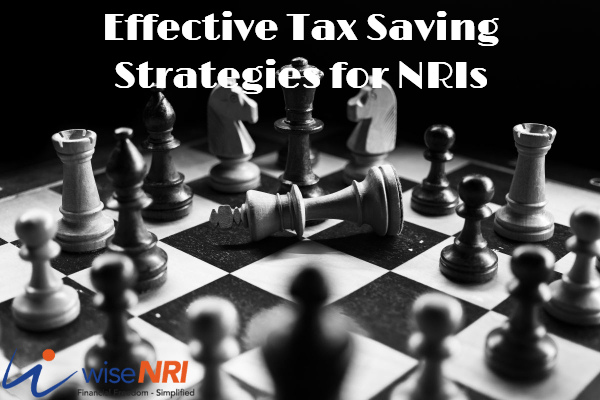Working abroad can be both exciting and overwhelming — just ask Manish, a 30-year-old professional working abroad. While living and earning in a different country offers incredible opportunities, it also brings financial complexities, especially around tax season.
Every year, as tax deadlines loom in both India and his country of residence, Manish finds himself anxious and unsure. He does not think he fully understands the tax rules that apply to him and suspects he isn’t making the most of available strategies to optimize his taxes. Like many others in his situation, he is looking for smarter, more tax-efficient ways to manage his foreign income — and that’s exactly what we’ll explore in this blog.

Tax Treaties (Double Taxation Avoidance Agreement – DTAA)
India has signed Double Taxation Avoidance Agreements (DTAA) with almost 100 countries such as USA, UK, Canada, Australia, Singapore, UAE, etc. These treaties prevent NRIs from being taxed on the same income in both India and their country of residence. As an NRI earning abroad, understanding DTAA provisions is critical to optimizing your tax outgo. You can claim the benefit of DTAA using one of the following three methods applicable:
Foreign Tax Credit (FTC) – It is claimable in the resident country. The resident country will allow a tax deduction from the taxes you have paid in the source country.
Taxable only in one country – The income is taxable either in your resident country or in the country of residence.
Reduced rate of tax – The income is taxed in one country at special tax rates.
The following documents are required to be able to optimize taxes under DTAA:
- Tax Residency Certificate (TRC)
- Form 10F
- Form 67
- Supporting documentation such as identity proof, address proof, visa status, tax account details (e.g. PAN)
Managing income in India
Many NRIs have ownership of property and other assets in India. As an NRI, you have to manage these assets properly to ensure compliance with tax laws in Inda and also to optimize your tax outgo. Here are some pointers on how various incomes are taxed and tips to optimize taxes:
Rental Income – Rental income from properties in India is subject to a tax of 31.2%. NRIs can claim a refund if excess TDS has been deducted by filing their income tax return in India in which the rental income is reported. NRIs need to provide the Certificate of Exemption u/s 197 indicating that the actual tax liability is less than the amount of TDS that to be deducted from their income. Read – NRI TDS
Interest Income – Interest earned on Fixed Deposits (FDs), savings accounts, and other investments in India is subject to TDS at 31.2% for NRIs. NRIs can file for a tax refund if excess TDS is deducted. Another way to save tax is to open NRE (Non-Resident External) or FCNR (Foreign Currency Non-Resident) accounts, where the interest earned is tax-free in India.

Check – NRIs: No tax on Mutual Fund Gains?
Capital Gains – Capital gains tax is applicable for NRIs when they sell a property.
- Short-term capital gains (STCG) are taxed at 30% (plus surcharge and cess) if the property is sold within 2 years of purchase.
- Sale of land and building made from 23rd July 2024 will attract a Long-term capital gains tax (LTCG) rate of 12.5% without indexation benefit or a 20% tax rate with the indexation benefit at the option of taxpayer, if such property has been acquired before 23rd July, 2024.
You can save tax by investing the LTCG in another residential property within 2 years (or construct a new property within 3 years). It will help you claim an exemption. Another way to get tax exemption is to invest the LTCG amount in specified bonds (such as REC or NHAI bonds) within 6 months of the sale. Do note that the lock-in period for these bonds is 5 years.
Other income – NRIs who receive income from the following assets in foreign currency can also avail of exemption.
- Shares of public or private Indian company
- Debentures issued by a publicly-listed Indian company (not private)
- Bank deposits and deposits with public companies
- Central Government securities
- Other Central Government assets specified in the official gazette for this purpose
NRIs can avail of exemption under certain conditions if the gains are reinvested in:
- Shares of Indian company
- Debentures of Indian public company
- Deposits with banks and Indian public companies
- Central Government Securities
- NSC VI and VII issues
Check – Best Investment options for NRIs
Income from foreign retirement funds
If you have contributed to retirement funds like 401(k) in the USA, pension plans in the UK, or RRSPs in Canada and later become residents of India, you can optimize taxes too. Income from the accounts opened in any of these countries will not be taxable on an accrual basis in India when the you becomes an Indian resident. The foreign country (USA, UK or Canada) will subject the income to taxation at the time of withdrawal or redemption provided you have filed Form 10-EE on or before the filing of Income-tax returns.
We share a few steps to implement an effective global tax plan and ensure that tax outgo is minimized while complying to tax laws in the country of residence and in India.
- Review your income and tax liability carefully
- Work with a financial planner experienced in cross-border taxation
- Stay updated on tax laws in India and in your country of residence. They change frequently and it is your responsibility to understand and comply with them.
Managing taxes can be quite challenging and when you have to manage them for multiple sources of income across countries it can become even more complex. If you have questions about taxation on global income or need guidance in optimizing tax liability, feel free to reach out to us.
